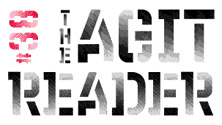
Face Control
Sub Pop
Face Control takes the template laid-out by Plague Park, Handsome Furs’ excellent, memorable first record, and pushes it slightly at the edges, mostly complicating the song structures and adding more noise here and there. That means the songs are thick with pulsing, electric beats, and rely heavily on Dan Boeckner’s vocal talent for incredible hooks. Overall, the record really is more electric and noisy than its predecessor. You won’t find the acoustic guitars all over that one, but you will find a few mostly instrumental, 90-second interludes of pomp and fuzz, helpful in breaking up the rhythm. Somewhere in the crease between four-on-the-floor and catchy tunes, Handsome Furs find a place to sing about loneliness, the emptiness of modern culture (even in Prague) and dying relationships. And that’s where you’ll find the record’s strengths.
“All We Want, Baby Is Everything” is a great example. Boeckner still sings like he’s got a lot of wounds to purge, but there’s a chippy, jangly guitar hook over the thumping bass. On “Talking Hotel Arbat Blues” (it’s in Russia), they manage to turn ye olde “Summertime Blues” into a fairly stomping complaint, singing “I don’t know but I’ve been told, every little thing’s been bought and sold.” There’s nothing so desolate as Plague Park’s “The Radio’s Hot Sun,” but Face Control does end with a couple of longer, more serious numbers, as albums will do. “Radio Kalingard” is a bit of a rollercoaster of a song, and sounds like it was written as an album climax, Boeckner crying, “We never said goodbye,” as guitars and keyboards build in layers and drive towards the final drones that cap the track.
Face Control was supposedly inspired by Boeckner and wife Alexei Perry’s travels in Eastern Europe and Russia, but don’t expect this to be their Berlin or anything. There’s something really deliberate in how the record’s foreign acents are juxtaposed with its occasionally over-the-top American-ness. I doubt it was planned so thoroughly. Instead, it’s dotted with references to hotels and the resistance, and one of the track names is in Russian. But it’s not that different for the band if only for being just as terrific and just different enough.
Matt Slaybaugh
MP3: “I’m Confused”
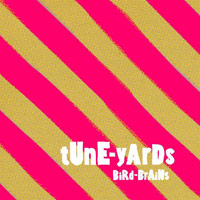
Bird-Brains
Marriage
I’d like to imagine Merrill Garbus as the hippie-chic outsider, who in high school everyone adored but were ultimately wary of because of her patchouli-soaked wardrobe and unlikely music tastes. Lugging in cassette Burundi drummer field recordings in Django Reinhardt boots, she’d practice seance and meditation during study hall. Then she grew up and channeled those bohemian tendencies into a junk-box melange of do-it-yourself world tone and rhythm that would have even the most adept NPR lunch-hour personality digging for comparisons. Reading back over that it’s easy to cringe at such a monstrosity of neo-hipster colonialism. Bird-Brains, the debut from Garbus’ Tune-Yards, doesn’t toe that line. Instead Garbus is intent on creating her own mythology, a personal folklore in song. In bare form that entails Garbus’ plucking gypsy melancholy on her tenor uke and chanting earth-friendly tongue-twisters in capacious range. It’s a voice both frightening and soothing depending on the mood that envelops it.
And mood is the one thing Tune-Yards tends to struggle with on Bird-Brains. Beck might not be her closest relative, but his early forays into grab-bag, retro collage can be heard in the ready-mades of Garbus’ wandering spirit. Often whatever glue is holding them together works, as on “Jumping Jack,” a sub-fi double-dutch played with empty glasses and static waves, near proto-hip-hop led with primal screams and organ thuds. Or on “Little Tiger,” which invites woodpeckers and falsetto arias to go face-to-face with Portishead’s ethereal melancholy. “Safety” even traipses down to Brazil like a less industrious Tom Ze, complete with a fancy-free tropical hoe-down. When Tune-Yards irritates, though, through sump-pump beats and overly cute playground rhyme schemes, it gets under the skin, and I start to remember that girl in high school all over again.
Kevin J. Elliott
MP3: “Sunlight”
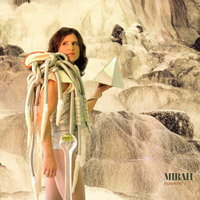
(A)Spera
K
It’s been five years since Mirah (Yom Tov Zeitlyn) released C'mon Miracle, a record that would be unparalleled in its idiosyncratic charms had she not released its equal, Advisory Committe, two years earlier. But releasing an album of remixes and doing an album inspired by the writings of an entomologist with the Spectratone International ensemble, she hasn’t simply been biding her time in the interim. Still the passing years can change a person, and on (A)Spera, she’s not the same songsmith, rambunctious and impetuously pushing the envelope between pop panorama and lo-fi charisma.
Of course, she had a collaborator in such endeavors before in Phil Elvrum, and he’s absent here for seven of the record’s ten tracks. Without knowing, I’m going to wager those are three of the record’s highlights: the metallic overload of “The Forest;” the haunted vibe of “The Word Is Falling;” and Tex-Mex “Cold, Cold Water” companion piece, “Country of the Future.” But I could easily be wrong because there are very few cuts that stand out poignantly from the rest. Lead-off “Generosity” is one of Mirah’s best, an evergreen pop song cut with strings to give it a baroque sense of the epic belied only by a jagged guitar line. “The River” and “Bones & Skin” are more in keeping with singer’s Olympian teethcutting, while “Education” and “Shells” point in a direction slightly less exciting. But (A)Spera is a solid album, showing Mirah, if not exactly maturing (though you could say that too), then perhaps just making some small evolutionary steps.
Stephen Slaybaugh
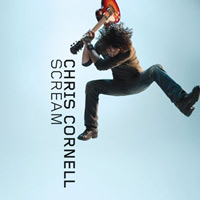
Scream
Interscope
You could put a thousand monkeys in a room with a thousand typewriters and they wouldn’t even begin to write something as bizarre as “Chris Cornell teams up with Timbaland for an entire album.” Well, apparently it took a thousand and one monkeys, because it has come to pass: Cornell and Timbaland have joined forces for Cornell’s latest solo album, Scream.
But the crazy thing is that after the initial “What tha hell?” Scream actually kind of works. It’s a tough pill to swallow, but it’s not the total trainwreck that it should be by all rights. Where the record works best is when Cornell and Timbaland stick to the idea of rock singing over futuristic R&B beats. “Ground Zero” is probably the best of the bunch, a deceptively mid-tempo groove with Timbaland trademarked random vocal scats in the background and Cornell riding the beat as if he’s been making this type of record for years. But the best detail about the record is how it’s sequenced like a mixtape. There are elements in the coda of the songs that transition into the next so seamlessly you don’t even realize it. It’s a nice touch.
Where Scream goes pear-shaped is when Cornell tries a bit too hard to sound “urban.” For example the chorus of the lead track is “That bitch ain’t a part of me! No, that bitch ain’t a part of me!” This side comes out again on “Other Side Of Town” where he utters, “What type of shit is she on?” It’s like when your dad tries to be “down with the kids.” You just want to rub his head and quietly block B.E.T. on the cable box. And when the tracks get a bit too pop sounding Cornell sounds out of place. He’s a guy who needs some low end to anchor his napalm-strength vocals.
Scream is part good record and part curiosity. Timbaland fans may be confused at who exactly this “old guy” is, and Soundgarden and Audioslave fans are going to be pissed. But they should all just let the man have his midlife crisis in peace.
Dorian S. Ham
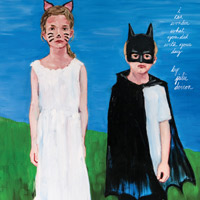
I Can Wonder What You Did With Your Day
Jagjaguwar
After the ’96 demise of Eric’s Trip, Sub Pop’s Great Canadian Hope, bass player Julie Doiron embarked on a quietly prolific solo career, and she’s releasing her eighth solo album, the sonically fractured I Can Wonder What You Did With Your Day.
At a very lean 31 minutes of playing time, Doiron doesn’t waste a moment on the album’s 12 tracks. Most songs take a classic pop song approach and clock in around three minutes. For Doiron, though, “epic” just means breaking the four and a half minute mark. As a songwriter, she’s deeply sincere while still managing to sidestep any sort of overly sensitive singer-songwriter cliches. The trick is that instead of playing it cute or overwrought, she employs a direct and unaffected delivery, making for a very thought out record. On the album opener “Life Of Dreams,” an acoustic number augmented by birds chirping in the background, Doiron sings, “I’m living the life of dreams. With good people all around me, I’m living the life of dreams.” In the wrong mouth, those lines could be incredibly cloying, but she manages to hit just the right tone of optimism.
I Wonder What You Did With Your Day also hits the right tone with its music direction. Doiron and her collaborators, Fred Squire and fellow Eric’s Trip alum Rick White, aren’t afraid to get dirty. Distorted guitar riffs disrupt straightforward pop, delicate acoustic numbers are followed by chugging indie rock interrupted by glass breaking and random shouts in the background. Sure it sounds schizophrenic, but it all fits neatly together and into her lengthy discography.
Dorian S. Ham
MP3: “Consolation Prize”
ALBUM REVIEWS
The Sand Pebbles, A Thousand Wild Flowers
Gun Outfit, Dim Light
Death Sentence: Panda! Insects Awaken
Angus and Julia Stone, A Book Like This
Aidan Moffat & the Best-Ofs, How to Get to Heaven from Scotland
Morrissey, Years of Refusal
Black Lips, 200 Million Thousand
The Drones, Havilah
The Prodigy, Invaders Must Die
Bibio, Vignetting the Compost
M. Ward, Hold Time
Mountains, Choral
Mi Ami, Watersports
Faunts,
Feel.Love.Thinking.Of.
